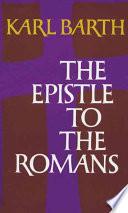
The Epistle to the Romans (1918; 1921)
Context: We know that God is He whom we do not know, and that our ignorance is precisely the problem and the source of our knowledge. The Epistle to the Romans is a revelation of the unknown God; God chooses to come to man, not man to God. Even after the revelation man cannot know God, for he is ever the unknown God. In manifesting himself to man he is farther away than before. <!-- p. 48
